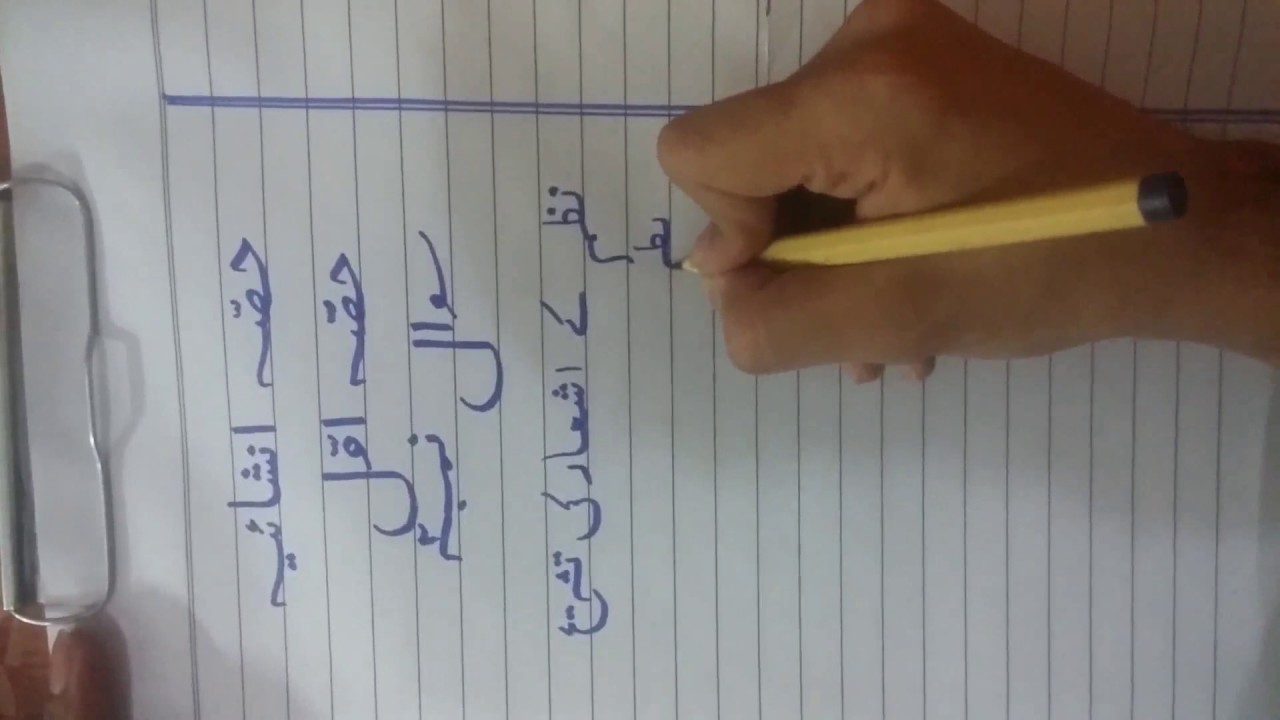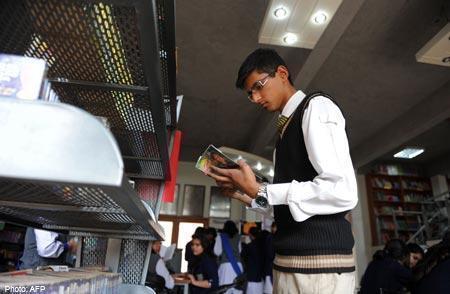Disclaimer*: The articles shared under 'Your Voice' section are sent to us by contributors and we neither confirm nor deny the authenticity of any facts stated below. Parhlo will not be liable for any false, inaccurate, inappropriate or incomplete information presented on the website. Read our disclaimer.
Matriculation result is FINALLY out. There are many students who’ve scored excellent grades making their parents proud and securing a prominent place in their school and academy’s advertisement. And then there are those who’ve gotten average marks because apparently, the examiner has been unfair to them despite the laborious hours they spent burning the midnight oil and cramming those objective type questions. There’s a third category too: those who’ve barely crossed the dreaded 33% boundary line and are happy with what was written in their luck.
Regardless of the category, each student falls in, the next big step in their journey is almost the same: choosing the discipline for Intermediate and deciding which college they should get enrolled in. Well actually, only a few students, who typically happen to fall in the first category, have this privilege to choose their field of study and preferred institution. They will sit with their parents or anybody else they trust and decide upon a field that will benefit them in the long run and then fills a form for the institute of their choice because they know they’ll get accepted. Whereas others will apply to a dozen colleges and in multiple disciplines so that they can try their luck and hit the best shot possible.



Source: choconini.com
Very few students would have pre-decided their field for Intermediate. And among those few, most would have chosen to enroll in pre-medical or pre-engineering, because that’s what their parents and society have drilled in their minds as a sign of respect and honor.
And that’s what saddens me the most. An average Matric student is aged 15-16 years, yet they still don’t know what to do with their life. They need the help of others to decide what to study for the next two years so that they can secure a bright future for themselves. And by the way, even after they’ve completed those two years of Intermediate, they will still be clueless about what to study next, and then this whole scenario will repeat itself.
No, I’m not being negative, I’m just telling you what’s been happening for years. Anyways, after they’ve graduated with a degree, they will start applying to random jobs so that they might secure one that brings them a decent income. (In case you’re wondering, a decent income usually means making enough to feed your family and pay your bills and not earning back the hefty amount of money you spent on your degree for next many years.)



Source: Breaking News Pakistan
Now I’m not here to blame the government or the institutions for any of this. Yes, they have their major share in the crime, but right now I’m going to focus on the main culprits: ourselves. As soon as a child starts forming sensible sentences and is able to carry out conversations, we decide that it’s time to admit him/her in a school. The best one we can afford. Because our child deserves the best of everything. Now, in every school, there are other children who have different levels of intellect.
Some have better intellect than our daughter or son, some have a lower intellect and some of them are at the same level as our child. But each of those children has their own set of abilities, strengths, and weaknesses. Each of them is good at something others are only average at and then there are some things he or she might not be very good at. Yet, each child is expected by their parents to get the 1st position in class, which obviously isn’t possible.



Source: YouTube
As a result of these expectations, a sense of competition starts taking birth inside the child. Their only focus in school becomes to perform better than others children in the class, to score higher than them, to rank in the first position. And those children who still don’t care much about beating others are then fueled by parents and are made to believe that success is synonymous with a good score in school.
“Is martaba tumhari first position aani chahye.” “Ek ek lafz theek se yaad karo. Exam mein kuch bhoolna nahi chahye. First position leni hai.” And if God forbid, the poor child misses the first rank, they themselves are responsible for the scorns, taunts and sometimes even slaps they’ll receive in return. Yes, there are some lucky children too, who don’t even get scolded for not scoring high enough, but those too are told to work harder next time so they can get a good rank. “Koi bat nahi beta. Agli martaba zyada mehnat karna. Humen pata hai next time aapki position aaye gi InShaaAllah.”



Source: Made For Pakistan
This whole pressure built by the expectations set by parents and society for years has killed the actual purpose of education (i.e, to become the best version of oneself and to explore and serve one’s true purpose in life) and has turned it into a platform where you need to prove yourself better than others. Amidst cramming MCQs and trying to score higher than their peers, children lose the ability to flourish as unique individuals and the space to explore their strengths and polish them.
And by the time they reach Matriculation, they’ve completely lost their true essence and their only purpose in life is to score higher than others, to get good grades in Matric, then in Intermediate and than a 4.0 GPA in University. All of this while hating the subjects they’re studying and praying for this phase to pass so that they can get a good job in a reputable organization and make a decent living doing the work they hate or at least don’t like.
Let’s take a minute to imagine what would happen if our children didn’t have this pressure to outperform others in studies. They wouldn’t have to worry about excelling in all the subjects in order to achieve the highest score overall. They would have more space and time to study and explore the subjects they liked. They would achieve a better understanding of their core strengths and be able to pinpoint their purpose in life more easily. Because the purpose Allah has chosen for you is always associated with your strengths. And when you choose to honor the gifts He has given you and you try to tap into your potential, He holds your hand and guides you towards your purpose.
Back to the discussion, when you know your purpose, you have a clearer vision of what you want to be in life. And then you start planning your life accordingly. You choose the subjects that are in alignment with your vision and then, studies become interesting. They become easier. You study not to get good marks or a good GPA, but because your degree or diploma or certificate is a stepping stone towards your purpose in life and it’s going to teach you how to serve that purpose better and become the best version of yourself each day.



Source: Ilm.com.pk
Then, after your education is completed and it’s time to finally get a job, you don’t apply to random jobs. You apply to jobs that fulfill you and drive you towards your purpose in life. And your job won’t feel boring. You’ll be passionate towards it, and therefore, work will be fun. As a result, you’ll excel and money will come as a by-product of all of it.
And dear parents, no, your son or daughter doesn’t have to wait till matriculation to decide what to do with their life. In fact, that’s one of the worst times to do so. Because they’d have spent more than 10 years of life focusing on others and trying to get better than them. And as a result, they’ would have already lost the connection with their own core strengths. The first ten years of a child’s life is the prime time for their mental growth and nourishment. And unfortunately, this is the time we spend drilling the concepts of cramming and competing in their innocent minds. If instead, we spent these crucial years of our children’s lives helping them find their strengths and tap into their potential, they wouldn’t have to struggle in matric and onwards to decide what to do with their lives.
Just think for a minute, if Muhammad Bin Qasim’s mother had taught him to wait until he turned 15 to decide what to do with his life, would he be able to conquer Sindh at the young age of 17? Absolutely not. Life starts when we’re born. Why waist 15 important years before finally deciding what to do with the rest of it? There’s no doubt that every parent wants the best for their child, but sometimes the steps we take for their good can have a negative impact on their lives.
My request to all parents and parents-to-be reading this is that instead of telling your children to run after grades and do better than others, tell them to try and do better than themselves. Teach them to improve themselves, whether it’s in studies or anything else, and become a better version of themselves every day. This will help them identify their purpose in life easily and choose the most appropriate career and field of education for themselves. And yes, that could also mean they’d become a doctor or an engineer. But only if that’s what Allah has willed for them.



















